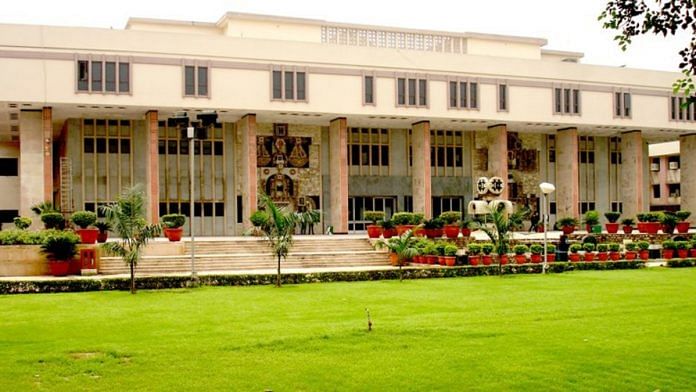New Delhi: The All India Muslim Personal Law Board (AIMPLB) Friday filed an affidavit in the Delhi High Court, seeking to be made party to a case in which a BJP leader has sought the framing of a Uniform Civil Code.
The application, sanctioned by AIMPLB secretary general Maulana Wali Rahmani, states that the UCC petition, filed by BJP leader Ashwini Upadhyay, desires only to “attack the personal laws of Indian Muslims”.
“The board is concerned with the impact that such a Uniform Civil Code law may have on the practical aspects on the personal laws of the Indian Muslim,” the AIMPLB’s application states.
“The present status quo, wherein Islamic religious laws govern personal matters of the Indian Muslim, is sought to be attacked under the garb of the present mischievous petition.”
Also read: Modi govt has been working for a Uniform Civil Code and we didn’t even notice. Until now
What has happened so far
In May this year, the Delhi High Court sought a response from the Centre on Upadhyay’s PIL, which seeks the framing of a Uniform Civil Code — which is provided for in Article 44 of the Constitution — to promote unity, fraternity and national integration. The Centre is set to file its reply by 27 August.
A division bench headed by Chief Justice Rajendra Menon issued a notice to the central government and the Law Commission of India, seeking their stand.
“(Article 44) proceeds on the assumption that there is no connection between religion and personal laws in a civilised society. The object of Article 44 is not to encroach upon religious liberties guaranteed under Article 25,” the plea states.
Upadhyay’s plea seeks directions to the central government to constitute a judicial commission or a high-level expert committee to draft a Uniform Civil Code within three months, while considering the best practices of all religions and sects, civil laws of developed countries and international conventions.
But now, the AIMPLB has questioned the “credibility” of the petitioner, and has quoted two instances when the CJI himself had reprimanded Upadhyay for filing frivolous petitions.
The AIMPLB notes that Muslim personal laws in India are drawn from the Shariat Application Act, 1937, and apply to “interstate succession, special property inherited or obtained under contract or gift, dissolution of marriage, maintenance, dower, gifts, trusts, wakf, properties, etc”.
In 2018, just before its dissolution, the 21st Law Commission of India under Justice (retd) B.S. Chauhan had suggesting amendments in several personal laws of different faiths, but refrained from framing a UCC.
Also read: Uniform Civil Code could be delayed by 10 years






